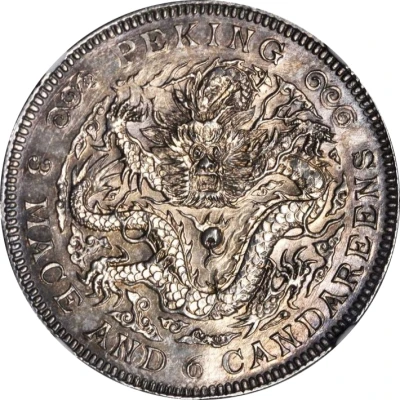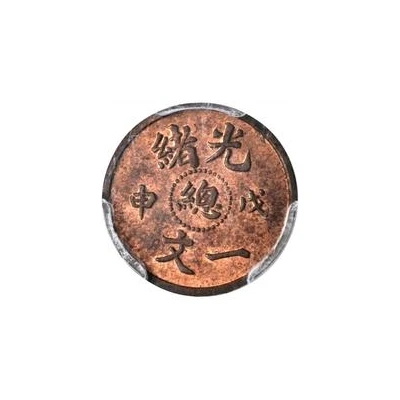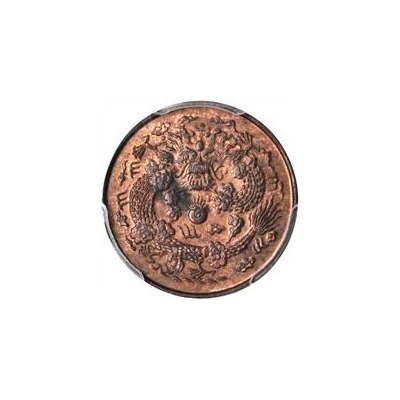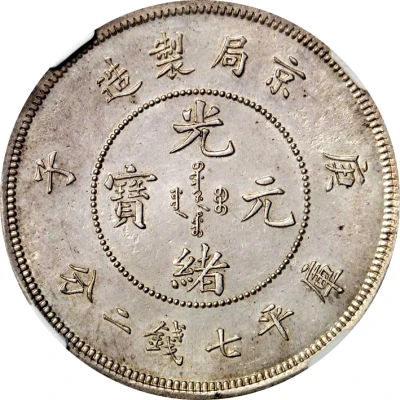
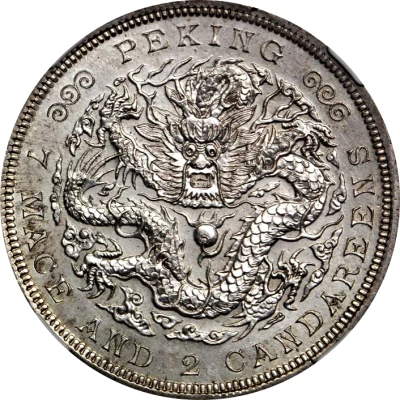

© Stacks Bowers
1 Tael - Guangxu Pattern
37 (1900) year| Silver | 26.90 g | 39 mm |
| Issuer | Empire of China |
|---|---|
| Emperor | Qing dynasty › Guangxu (光緒帝) (1875-1908) |
| Type | Pattern |
| Year | 37 (1900) |
| Calendar | Chinese cyclical (cycle starting in 1864) |
| Value | 1 Tael |
| Currency | Peking Tael (1900) |
| Composition | Silver |
| Weight | 26.90 g |
| Diameter | 39 mm |
| Shape | Round |
| Technique | Milled |
| Orientation | Medal alignment ↑↑ |
| Demonetized | Yes |
| Updated | 2024-10-04 |
| Numista | N#243328 |
|---|---|
| Rarity index | 90% |
Reverse
Dragon with pearl at centre surrounded by English legend.
Script: Latin
Lettering:
PEKING
7 MACE AND 2 CANDAREENS
Edge
Reeded.
Comment
The Peking Mint opened in 1899, and one later, these coins were minted as an attempt to establish a national silver currency. However, the Boxer Rebellion broke out that same year, which devistated Peking and destroyed the mint. Luckily, the original dies were saved, and restrikes were made in Hong Kong in 1947. While some actual patterns likely exist, most are restrikes (which are very rare themselves).The pictured example is one of the 1947 restrikes, indicated by the pitted surfaces caused by rusted dies (which would have happened due to being stored in humid conditions for an unspecified amount of time before the restrikes were made).
Interesting fact
The Pattern 1 Tael coin was designed by a French engraver named Charles Fournier, who was commissioned by the Chinese government to create a new currency for the country. Fournier's design featured a portrait of the Guangxu Emperor on the obverse side of the coin, and a dragon on the reverse side. The coin was minted in 1900, and it was the first coin to feature the Guangxu Emperor's portrait. However, it's worth noting that the Pattern 1 Tael coin was not widely circulated, as it was only minted in small quantities as a trial or pattern coin. Therefore, it is considered a rare and valuable collector's item among numismatists today.

